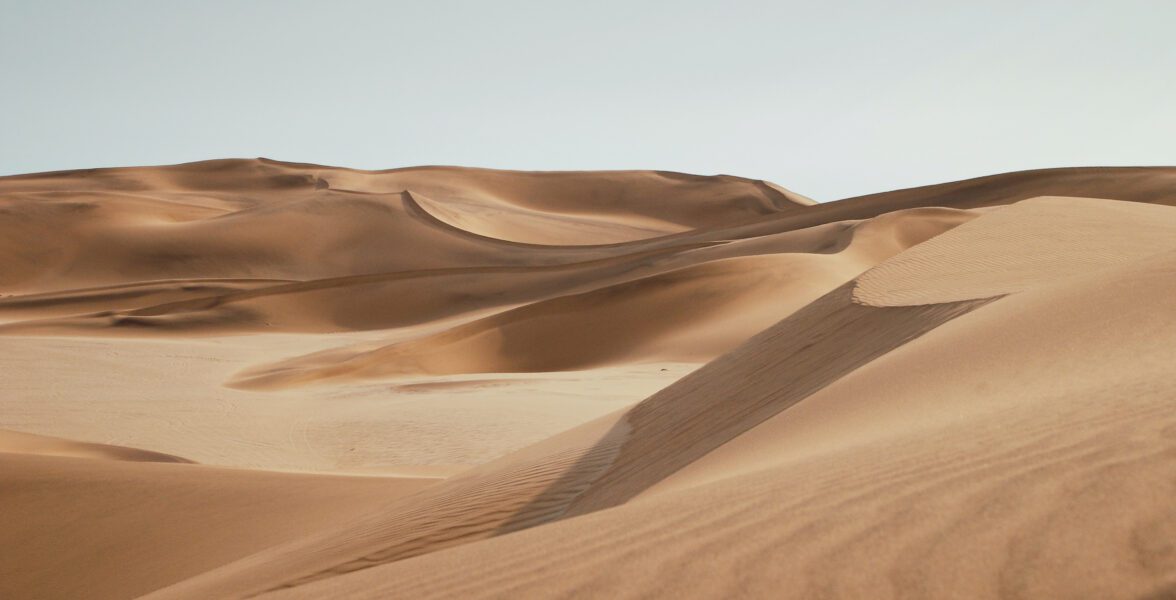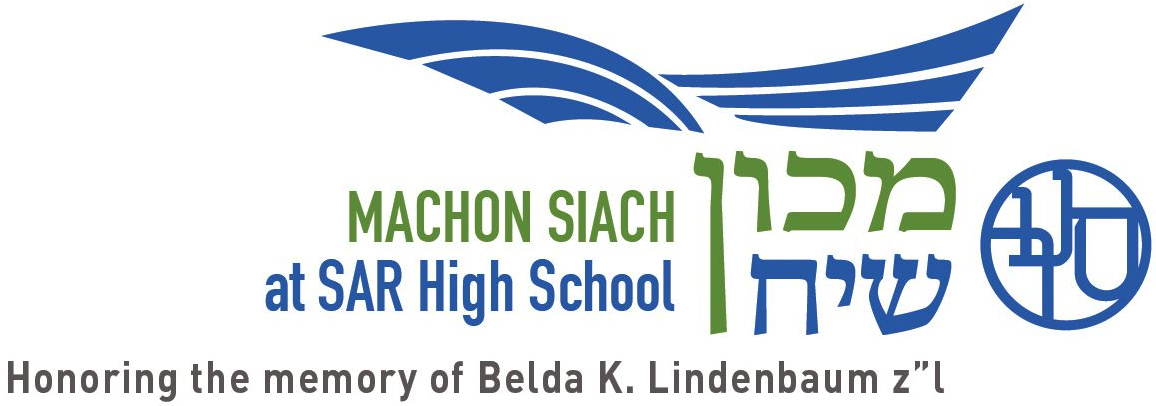
Leaving the Desert
At the outset of Hive Live, I wrote a piece for The Washington Post Sunday magazine about SAR’s unique experience learning and teaching on Zoom during quarantine. By the time the article appeared a couple of weeks later, Washington, D.C. was also on lockdown, with the rest of the country following quickly behind. Another few weeks later, the article felt hopelessly dated; my seemingly novel sentiments became clichéd, and others’ writings each day examined every detail of this new experience, reflecting the sense of stasis so many of us feel, an endless cycle of repeated worries, doubts and frustrations.
One popular piece from the Harvard Business Review, “That Discomfort You’re Feeling is Grief,” joined that loop when the novelty of our situation became boredom and then a deep and abiding sadness. The author suggested that we allow ourselves to experience the famous five stages of grief: denial, anger, bargaining, depression and, eventually, acceptance. He asked us to remind ourselves that “this is temporary.”
That advice seemed useful, and I assuaged my anxiety by repeating his line as a mantra: this is temporary; this is temporary. In recent days, though, I have begun to reconsider that message. While missing Purim was a loss, our separation then indeed felt temporary. Pesach, however, was the true blow to our vision of the world, the beginning of a rupture we are still only beginning to grasp. And now, as we approach Shavuot, I aim to stop saying “this is temporary” and instead to begin saying “this is opportunity.” Shavuot heralds a need to look forward with attention to change and growth, a turning away from mitzrayim and towards God’s vision for the Jewish people.
When we wandered in the desert, we pined for Egypt. Even with its suffering and misery, we were powerfully drawn to what we already knew. Eventually we reached Eretz Yisrael and were able to craft a different world — also one with problems, of course, but infinitely better than what we’d had — and the fulfillment of a divine promise. Those years in the desert laid bare our inflexibility, our lack of vision, our profound and illogical attachment to the familiar. We are in the desert now, not able to adapt because this world is merely “temporary” yet wishing still for something we cannot have.
Humans are incredibly resourceful. If we needed to accept a physically-distanced existence for the long term, we could do it. If we knew now that this life would be our forever life, we would already be investing in new ways to share art and theater and music; plans would be underway to remodel shuls, stadiums, restaurants and apartment buildings to accommodate separation while allowing for the communal experiences that give our lives meaning. The Met might already be dividing its grand halls into one-person rooms with a painting on each wall. Stadiums might create seating entirely of “family boxes,” allowing for a sense of togetherness within a structure of safe distance. Tennis teams would expand while wrestling teams would disappear; perhaps new sports and art forms would be created.
We can enact such changes more locally as well. SAR was founded on the principle of forward-looking evolution. In considering this ideal through the school’s early years, Rabbi Harcsztark sometimes asked, “If we were starting from scratch, what would we do?” We struggle to pose this question today, not knowing if we are creating a virtual future or a physical one. But now is precisely when we need this question most. Contrary to popular diction, we are not living a “new normal;” we are living the old normal with a number of uncomfortable modifications. If, however, we could release that memory of what we once had, what might education become?
My own vision includes smaller and shorter classes with more room for students to direct their own learning. Meeting with three or four students for smaller bursts of time could lead to greater focus and efficiency as well as more personalized attention. Perhaps students would be grouped by level rather than age, with students currently in different “grades” learning together. We could rethink academic disciplines too, not as siloed departments but as discrete skills: for example, interpretation of contemporary texts, interpretation of historical texts, critical writing, and narrative writing. Small groups of students might meet occasionally in person (spread far apart) and otherwise online, with more time for individual check-ins. Our limitations can prompt transformation.
This moment overtly calls us, as a society, to repair large broken structures in our world: health care, educational and housing inequities; entrenched classism, racism, antisemitism and other forms of bias; the hierarchized values placed on certain lives in blatant violation of our moral sensibilites. At the same time, we can pause to re-envision smaller details: does the education we currently offer our students best meet their varied needs? Do all of our school structures make sense as we continue to grow? Rather than merely remembering 2019 with nostalgia and longing, let’s recall what we disliked about our pre-COVID world. How can we use this radical reset to return not to normalcy but to something even better?
When I first wrote about our isolation, I was hopeful for a quick resolution and empowered by what SAR had achieved in such a short time. Now, months after writing about that initial shift to online life, I no longer expect a clean end to this disruption but a gradual, meandering conclusion. That realization was initially paralyzing. Nonetheless, I remain empowered by what SAR can accomplish and genuinely energized for the possibilities offered to us by this moment, awful as it is in so many ways.
When our lives feel upended, sometimes the best we can do is hold on, to work through those early phases of grief. Certainly we have denied, felt angry, and bargained. We know that we hate this desert, and we remember fondly the safety and comfort that existed before we were out here, stranded and afraid. But that uncertainty can also be a gift, propelling us to create a promised land. Next week we will stand together again to receive the Torah. We will not be together physically, yet we can be together in other, perhaps even more powerful, ways. If we simply place our existing structures online and wait to return to what we once had, we will not have embraced the opportunity for radical change that we are being given. Acceptance of Torah, this year more than ever, means looking forward to the unknown while trusting in God and in ourselves to make a better world.


